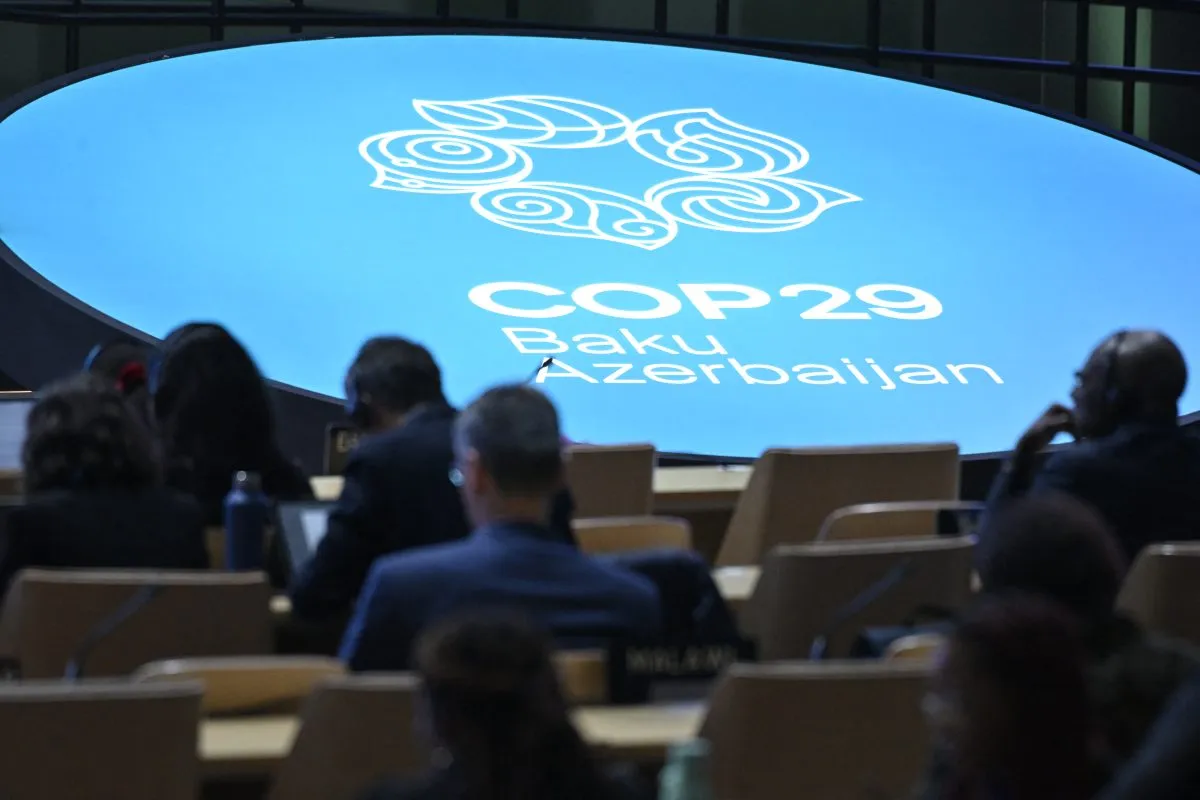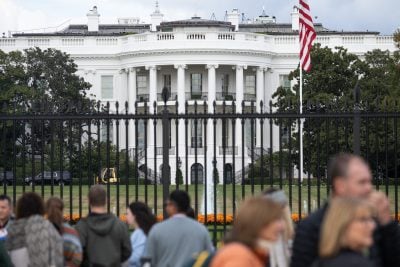As much of the world’s focus turns to Belém, the Brazilian city hosting the UN’s thirtieth Conference of the Parties (COP30) that will seek to avert an era of catastrophic, uncontrollable global warming, this book presents a revealing insight into the COP process.
It is an insiders’ account of the workings of the international community as it struggled to reach a consensus on limiting global greenhouse emissions. It was written by a remarkable author, the late Peter Betts, a senior British civil servant who served as the director of international climate change at the UK’s Department of Energy and Climate Change from 2008 to 2018 and thus had overall responsibility for the country’s strategy on international climate policy.
For six years – until the UK left the European Union – Betts was the lead negotiator for the European Union, including at the landmark Paris COP in 2015.
He had unrivalled insights into the workings of the international climate community, and he sets out his views and reminiscences with clarity, wit and notable political neutrality.
That neutrality extends to the many senior British politicians from several parties who he, as a civil servant, collaborated with. Betts explains that, in his view, the climate emergency is far more important than political leanings. He states: “We need to broaden and deepen the consensus for radical action on climate change and bring as many people as possible into the tent.”
COP’s beginnings
The Climate Diplomat begins with Betts’ recollection of first becoming involved in the United Nations Framework Convention on Climate Change (UNFCCC) when he joined the UK Representation (UKRep) to the European Union in 1994.
Two years earlier, in June 1992, the Earth Summit had been held in Rio de Janeiro.
It established the UN Climate Change Convention to tackle three major global threats – desertification, loss of biodiversity and climate change.
Following the Earth Summit the UN set up the COP summits, agreeing to meet each year to approve actions and review progress. Betts takes the reader through his experience of the UNFCCC, the convention that arose from the Earth Summit.
His role was to develop an understanding of the issues and processes of the convention that would allow the UK – within the EU, which then had 15 member states – to formulate a common position: an 8% emission reduction target, in preparation for the 1997 COP3 in Kyoto, Japan.
Betts’ first COP was COP4, held in Buenos Aires in 1998. Three African cities have hosted COPs in the intervening years: Marrakech twice, with COP7 and COP22; Nairobi with COP12; and Durban with COP17.
Betts admits: “Until Buenos Aires [COP4], I thought I knew about negotiations. After all, I had just spent four years in UKRep where I had been seen as one of the most capable desk officers… But I swiftly discovered that UN negotiations were very different to those at a European level, and orders of magnitude more complex.”
He points to differences between EU and UN negotiations. In the EU you always knew the rules of the game, and there was a broad sense that all countries shared common values and objectives. That is far from the case at UN level, where negotiations have to cover a huge range of competing interests and issues.
Competing blocs
Betts describes how in UN negotiations there were three major groupings – the EU; the “Umbrella group” (essentially the developed countries outside the EU); and the G77, which has expanded over time to consist of 134 countries today, ranging from huge emerging economies such as China and India to rich oil producers such as Saudi Arabia and very poor African and small-island countries.
“Self-evidently,” Betts remarks, “there were and are huge differences of interest within the G77 group.”
One joint position is consistent among the G77 – that developed countries should do more to tackle climate change than developing countries. Betts is inclined to agree.
“First, developed countries are richer and have more capacity to act. Second, developed countries have typically benefited from the use of fossil fuels during their development and have therefore emitted more in the past.”
However, he adds the proviso that the “developing” status of many of the G77 members is up for debate. “While these categorisations made broad sense in 1992, over the following decades they became increasingly out of date. “For example,” he writes, “by the time of the Paris COP in 2015, many of the richest countries in the world on a per-capita basis (such as some in the Middle East, or Singapore), and some of the biggest per capita emitters, would still be categorised as ‘developing’.”
All of this makes negotiating compromises between powerful blocs increasingly complex and contentious.
A diplomat’s life
Betts returned to London in 1997 and was soon appointed deputy director of international policy on climate change: he became director in 2008. Once again, he worked on approaches to forthcoming COP summits, but now with a UK rather than a broader EU perspective.
There was “a key development” just after COP6, held in The Hague in 2000, when the newly-elected US President, George W Bush, pulled the US out of the Kyoto Protocol in February 2001.
“The UK did not follow the US,” Betts writes, adding, “the rest of the world kept the process alive and it was the US that was isolated.”
That might be a lesson for President Donald Trump, who has echoed Bush’s action by removing the US from the landmark Paris Climate Agreement of 2015.
COP failures and successes
Betts covers COP meetings sequentially, describing the diplomatic efforts to take the Kyoto Process forward. There were failures, notably in Copenhagen in 2009 when there was a disappointing inability to ramp up ambition. There were successes, such as Durban’s COP17 where an agreement on measurement, reporting and verification of emissions reductions (MRV) was reached. On the biggest landmark to date, the Paris Climate Agreement of 2015, Betts notes: “At the highest level, Paris was a success because it massively reinforced the collective confidence of governments and businesses in the climate agenda.”
With recent COPs proving disappointing in their ambition and disillusion setting in – especially for African countries bearing the brunt of climate change – this account offers plentiful evidence of the value of the COP process and the importance of multilateral climate action. While the process is always fraught, the results can be transformative.
There is a tragic element to this brilliant book. Betts was diagnosed with terminal brain cancer in 2022.
With his wife Fiona MacGregor, he devoted the last 16 months of his life to writing The Climate Diplomat, which stands as a testament to diplomatic nous and commitment to leave the world a better place for future generations.
Want to continue reading? Subscribe today.
You've read all your free articles for this month! Subscribe now to enjoy full access to our content.
Digital Monthly
£8.00 / month
Receive full unlimited access to our articles, opinions, podcasts and more.
Digital Yearly
£70.00 / year
Our best value offer - save £26 and gain access to all of our digital content for an entire year!

 Sign in with Google
Sign in with Google 



